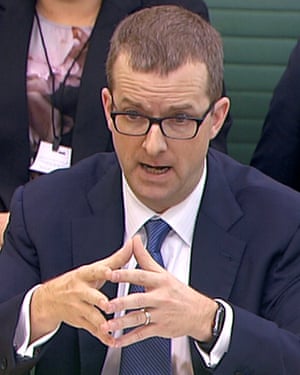Parliament’s report into fake news raises many questions, but will the government act?
Facebook is an out-of-control train wreck that is destroying democracy and must be brought under control. The final report of parliament’s inquiry into fake news and disinformation does not use this language, precisely, but it is, nonetheless, the report’s central message. And the language it does use is no less damning.
Facebook behaves like a “digital gangster”. It considers itself to be “ahead of and beyond the law”. It “misled” parliament. It gave statements that were “not true”. Its CEO, Mark Zuckerberg, has treated British lawmakers with “contempt”. It has pursued a “deliberate” strategy to deceive parliament.
In terms of how lawmakers across the globe need to think about Silicon Valley, the report is a landmark. The first really comprehensive attempt of a major legislative body to peer into the dark heart of a dark economy of data manipulation and voter influence. And to come up with a set of recommendations that its chair, the Conservative MP for Bournemouth, Damian Collins, says must involve “a radical shift in the balance of powerbetween the platforms and the people”.
The scale of the report – it drew from 170 written submissions and evidence from 73 witnesses who were asked more than 4,350 questions – is without precedent. And it’s what contributes to making its conclusions so damning: that the government must now act. That Facebook must be regulated. That Britain’s electoral laws must be re-written from the bottom up; the report is unequivocal, they are not “fit for purpose”. And that the government must now open an independent investigation into foreign interference in all British elections since 2014.
Cambridge Analytica was already on the committee’s radar when the scandal broke in March last year. But, over the ensuing weeks and months, it interviewed an extraordinary cast of characters to drill down into the underlying machinery of the new political power structures. And the result – a doorstopper of a report covering multiple interconnected issues – damns Facebook not just once or twice but time and time again.
It includes a new set of internal Facebook documents published today – from Six4Three, a software development company involved in a bitter legal dispute with Facebook – that show how Facebook was wheeling and dealing with users’ data. How it traded access to their friends’ data with companies prepared to buy its advertising. And how Facebook shut off access for others because it viewed them as “competition”.
At one extraordinary point, the report references the “Racketeer Influenced and Corrupt Organizations Act”, or RICO, the tough US laws drawn up to tackle the mob and organied crime. Could Facebook’s actions towards developers be viewed as RICO offences, the committee asked a Facebook executive. He said no. The report holds the possibility open. Certainly, the emails between executives carry more than a whiff of extortion. “Communicate in one-go to all apps that don’t spend that those permission will be revoked,” says one email. “Communicate to the rest that they need to open on NEKO [mobile ads] $250k a year to maintain access to data.”
But it’s the sections concerning foreign interference that are perhaps the most damning. The report accuses Facebook’s chief technology officer, Mike Schroepfer, of giving a statement to parliament about Russian interference that “we now know … was simply not true”.

And it’s the government that stands to be most embarrassed. It has remained almost silent on the subject in the face of an accumulation of evidence detailed here and which the report pulls no punches about: it is as urgent an issue of national security as the poisoning of Sergei Skripal.
In one of the most striking sections, it notes that the government’s response to its interim report, a stunningly dry and boring document that dodged all the main issues, drew little attention in Britain. In Russia, though, it was another story. The report pulled the stats from parliament’s website though and found that more people in Moscow (19.8% of visitors) had read it than those in London (17.8%).
And it tears apart…


